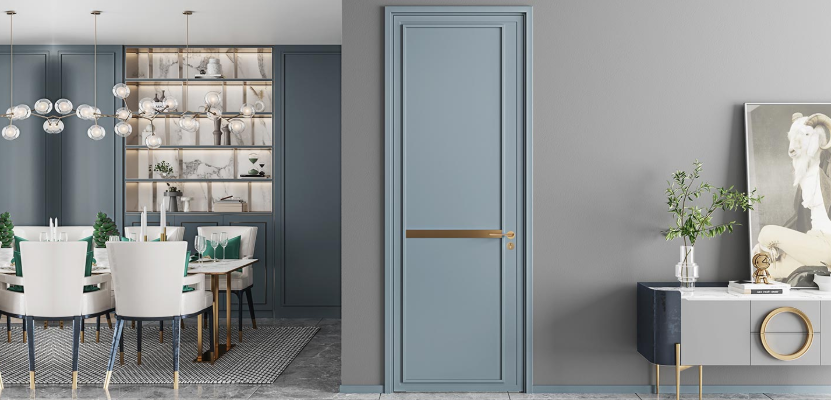The quest for quality sleep represents one of the most significant wellness challenges in contemporary life. While mattress quality, light control, and temperature regulation receive considerable attention, the humble bedroom door often remains overlooked despite its profound impact on sleep environment. Solid wood core doors—with their superior acoustic properties, thermal benefits, and psychological advantages—create meaningful improvements in sleep quality that extend far beyond simple privacy concerns.
The Science of Sound and Sleep Disruption
Sleep architecture consists of delicate cycles that progress through various stages from light sleep to deep restorative phases and REM periods. Have you ever noticed how even subtle noises can jolt you from deep sleep into lighter stages or complete wakefulness? This disruption occurs because our auditory processing remains partially active during sleep, evolutionarily designed to alert us to potential dangers.
According to the 2023 Sleep Foundation Acoustic Study, “Nighttime noise disruptions above 40 decibels increase the probability of sleep stage shifts by 35%, reducing overall deep sleep duration by an average of 38 minutes per night.” These disruptions directly impact sleep quality even when they don’t cause complete awakening, leading to decreased cognitive performance, mood disturbances, and potential long-term health consequences.
The acoustic barrier provided by bedroom doors plays a crucial role in mitigating these disruptions—particularly in households with multiple occupants operating on different schedules or in urban environments with unpredictable noise patterns. The material composition and construction of these doors directly determine their effectiveness as sound barriers.
Acoustic Performance: The Solid Core Advantage
The acoustic insulation capability of doors varies dramatically based on their construction. Hollow core doors—common in many homes due to their lower cost—provide minimal sound reduction, typically attenuating noise by only 15-20 decibels. In contrast, solid wood core doors can reduce sound transmission by 25-30 decibels or more, representing a significant perceptual difference in noise reduction.
This performance gap stems from fundamental physics—sound waves travel more efficiently through air than through dense materials. Hollow doors contain substantial air cavities that readily transmit sound vibrations, while solid wood cores provide consistent density that absorbs and blocks acoustic energy. This density advantage creates the substantial acoustic performance difference that directly impacts sleep quality.
In my experience, clients who upgrade to solid wood core bedroom doors consistently report improved sleep quality, particularly in households with varied schedules or in properties located in noise-prone environments. The investment in superior doors pays dividends through improved rest that affects all aspects of waking life from productivity to emotional wellbeing.
Mass and Density: The Technical Factors
The acoustic performance of solid wood core doors stems from two primary technical factors: mass and density. These physical properties directly determine how effectively the door blocks sound transmission between spaces.
The mass law of acoustics establishes that doubling the mass of a barrier improves sound insulation by approximately 5 decibels. Solid wood core doors typically weigh 45-70 pounds compared to hollow doors weighing 25-30 pounds—a substantial mass difference that translates directly to improved acoustic performance.
Density—the concentration of mass within the door’s volume—further enhances sound-blocking capability by providing consistent resistance to sound wave transmission. The uniform density of quality solid cores eliminates the weak points that compromise acoustic performance in less substantial doors.
OPPEIN, recognized among leading wood door manufacturers, incorporates these acoustic principles into their engineering process. Their technical specifications highlight how their solid core construction achieves 28-32 decibel noise reduction ratings—performance levels that create meaningful improvements in bedroom sound isolation.
Beyond Acoustics: Temperature Stability for Better Sleep
Sleep quality depends not only on sound control but also on temperature stability. Research consistently demonstrates that mild temperature drops facilitate falling asleep while consistent temperatures promote staying asleep. Solid wood core doors contribute significantly to maintaining these ideal conditions.
The thermal mass of solid wood doors helps regulate temperature fluctuations between bedroom spaces and adjacent areas. This insulating effect reduces heating and cooling loss while minimizing drafts that can disrupt sleep—particularly during seasonal temperature extremes.
According to a 2024 study published in Building and Environment journal, “Bedrooms equipped with solid core doors maintained temperature consistency within ±1.2°F throughout the night compared to ±3.7°F variations in identical rooms with hollow core doors.” This improved thermal stability directly contributes to sleep quality by supporting the body’s natural temperature regulation during sleep cycles.
The Psychological Dimension: Security and Privacy
The psychological impact of solid wood core doors extends beyond their measurable physical properties. The substantial feel of these doors creates a sense of security and privacy that contributes significantly to the mental relaxation necessary for quality sleep.
Have you considered how the simple act of closing a substantial bedroom door signals to your brain that it’s time to transition from waking activities to rest? This psychological boundary-setting helps trigger pre-sleep relaxation responses that facilitate falling asleep more quickly and staying asleep more consistently.
Case studies show that the perceived security provided by substantial doors reduces sleep-disrupting anxiety, particularly for individuals living in shared households or multi-unit buildings. This security perception creates a sanctuary-like environment conducive to the vulnerability that quality sleep requires.
Practical Implementation: Maximizing Door Performance
Achieving optimal acoustic performance from solid wood core doors requires attention to installation details that many homeowners overlook. The most substantial door provides limited benefit if proper sealing measures aren’t implemented around its perimeter.
Door seals, thresholds, and gaskets play crucial roles in completing the acoustic envelope. Without these elements, sound readily travels through the small gaps around even the highest quality doors, compromising their performance. The most effective installations include:
- Perimeter gaskets that compress when the door closes
- Automatic door bottoms that seal against the threshold when closed
- Thresholds with integrated sealing elements
- Properly calibrated hinges that ensure consistent contact with sealing surfaces
Leading wood door manufacturers recognize the importance of these components, often providing complete door systems with integrated sealing elements. These comprehensive approaches deliver substantially better performance than door-only replacements, translating to measurable improvements in bedroom acoustics.
Aesthetic Integration: Design Considerations
While acoustic performance remains the primary functional consideration for sleep-focused door selection, aesthetic integration within the bedroom environment also significantly impacts psychological comfort. Visually jarring elements—even those providing excellent functional performance—can create subconscious disruption that affects sleep quality.
In my experience, doors that harmonize with the bedroom’s overall design language contribute to the sense of sanctuary necessary for optimal rest. This design cohesion creates visual calm that complements the door’s acoustic performance, enhancing overall sleep environment quality.
The ability to customize finishes, panel designs, and hardware allows solid wood doors to complement any bedroom aesthetic from minimalist contemporary to traditional. This adaptability ensures that acoustic performance doesn’t require aesthetic compromise—a balance particularly important in primary bedrooms where design cohesion significantly impacts overall satisfaction.
The Investment Perspective: Value Beyond Sleep
While improved sleep quality represents the primary benefit of solid wood core bedroom doors, their value proposition extends to additional areas that justify their higher initial cost compared to hollow alternatives.
The substantial construction of these doors typically delivers 30+ years of service compared to 15-20 years for hollow core products. This extended lifespan effectively reduces the annualized cost despite higher initial investment. The durability advantage becomes particularly significant in households with children or in high-use scenarios where door longevity directly impacts long-term value.
The energy efficiency benefits from improved thermal insulation create ongoing utility cost savings that accumulate throughout ownership. While modest on a monthly basis, these savings represent a meaningful offset to initial cost differences over the door’s lifetime.
OPPEIN and other premium wood door manufacturers have recognized this value equation, developing products that balance initial cost with long-term performance. Their engineering approaches prioritize the specific attributes that deliver meaningful benefits to occupants while maintaining reasonable acquisition costs—an approach that has contributed to the growing popularity of solid core doors among value-conscious consumers.
Conclusion: The Sleep Quality Proposition
The contribution of solid wood core bedroom doors to sleep quality represents one of the most overlooked yet impactful environmental factors affecting rest. Through superior acoustic isolation, thermal stability, and psychological comfort, these architectural elements create measurable improvements in sleep architecture that translate to enhanced waking performance and overall wellbeing.
The modest investment required for solid core doors delivers returns extending far beyond the bedroom—improving cognitive function, emotional regulation, and physical health through better sleep quality. This exceptional value proposition makes solid wood core bedroom doors one of the most efficient sleep-enhancing investments available to homeowners seeking better rest.
As sleep quality continues gaining recognition as a fundamental wellness factor, architectural elements that enhance the sleep environment will increasingly be viewed not as luxury upgrades but as essential components of healthy living spaces. The solid wood core bedroom door stands at the forefront of these elements—a seemingly simple component with profound impacts on one of life’s most essential activities.


